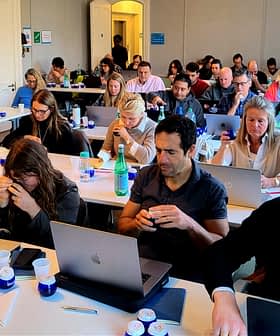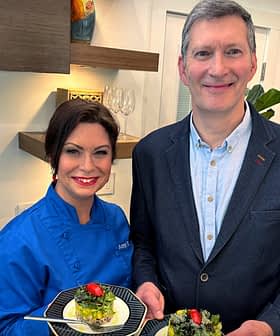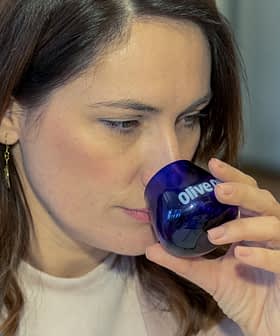Two of world’s most experienced olive oil tasters, Paul Vossen and Richard Gawel, have organized a unique one-day workshop designed to take olive oil tasters to the next level.
Attendees can look forward to an information-packed day that will teach them to identify flavors, aromas and quality olive oil through discussions, exercises and practical tasting sessions.
The workshop, to be held on July 27, 2015 in Forestville, California, is intended for tasters who are familiar with the positive and negative characteristics of olive oil such as fruitiness, bitterness, pungency and rancidity. Trainees of this workshop will build on their basic knowledge and learn how to improve their olive oil tasting skills through repetitive exposure to different olive oils.
Paul Vossen, a pioneer who offered the first olive oil training course in California in 1996 and began training the California Taste Panel in 1997, said, “The only real instructional material is olive oil. In order to be a knowledgeable taster it requires a lot of repetition.”
During the day, attendees get an opportunity to experience the characteristics of excellent oils by tasting award-winning olive oils from around the world. While this experience will expose tasters to the best side of olive oil, the workshop also will teach attendees to pinpoint defects.
See the program and register for the workshop here
“Many times tasters can recognize that there is something wrong but don’t know what it is exactly,” said Vossen, who twice served on the prestigious judging panel of the New York International Olive Oil Competition. The course will train tasters not only how to identify defects in olive oils but also recall the source of defects, a skill that adds to the credibility of the taster.
Another aspect of this workshop emphasizes training attendees to recognize characteristics in olive oil that compliment or contrast with different foods. This will be taught through tasting and olfactory exercises that will force the trainees to associate specific characteristics and intensities on a numeric scale. The ultimate aim is to train tasters to form strong brain-palate connections that will help them recall specific food aromas and flavors in association with olive oil.
Richard Gawel, who trained the first and second Australian IOC-recognized tasting panels and is a trained statistician, has built a statistical distribution of taster consistency. While the tasting exercises allow objective measurement of a tasters’ consistency, the statistical distribution helps benchmark each taster’s consistency against others.
The course intends to provide knowledge of olive oil tasting without bias for any brand or source of olive oil for producers, importers, professional olive oil tasters and people who are just passionate about olive oil.
According to Vossen, “Over the last 19 years, these training courses have helped producers make better olive oils. In order to make a good product, or a better product, the producer needs to know what that tastes like. They learn about the influence of variety, fruit maturity, and fruit handling on flavor. Then they make changes in how they manage their orchards accordingly.
“Being a good olive oiltaster has helped numerous processors to eliminate or reduce shortcomings in their systems that might lower the quality of their oils,” said Vossen. Processors have learned how the details of paste fineness in the crusher, malaxation time and temperature, or the addition of water into the system have an effect on oil flavor. Buyers and sellers of olive oil have used these courses in the past to identify olive oil grades by flavor, which has helped determine the real value of oils.”








